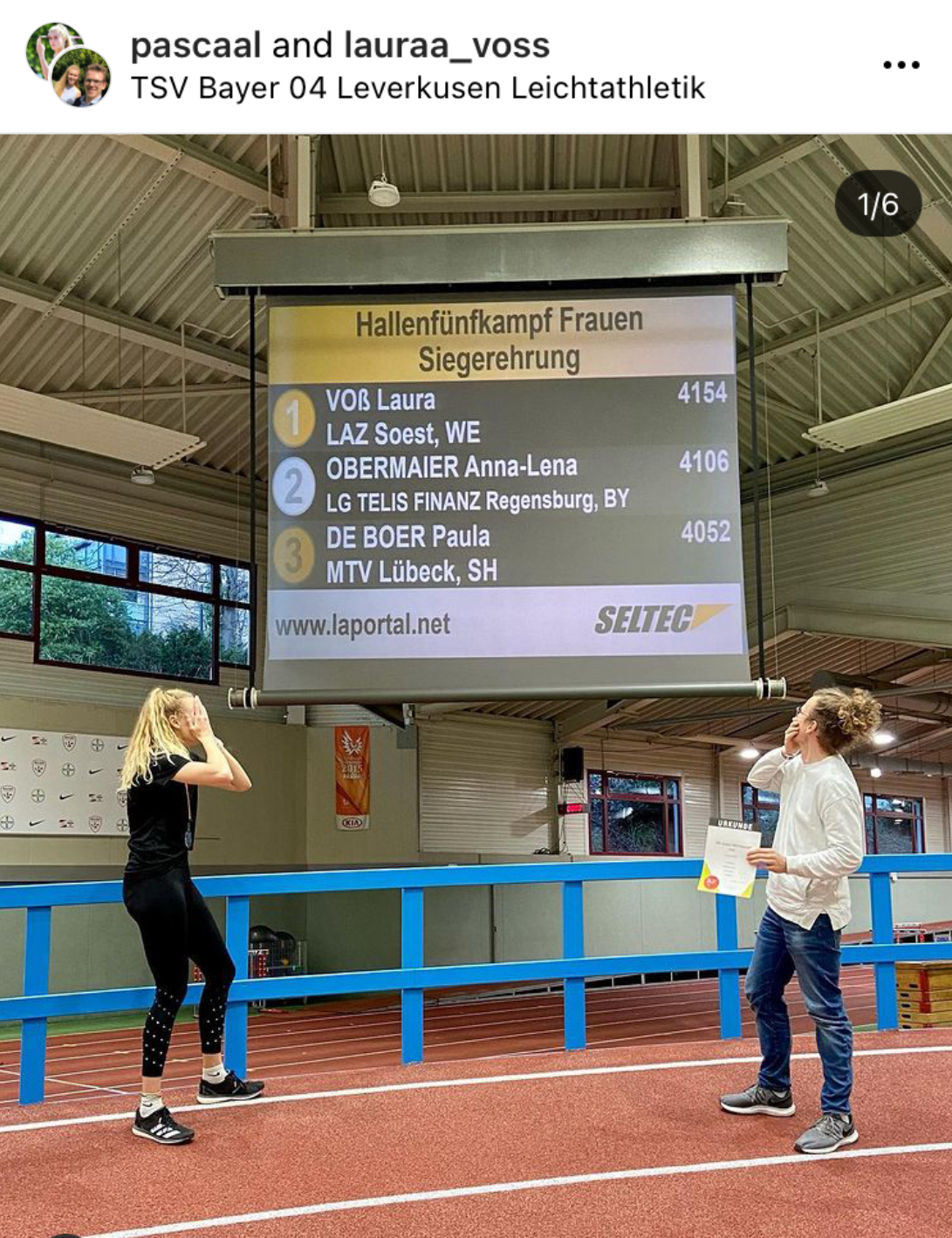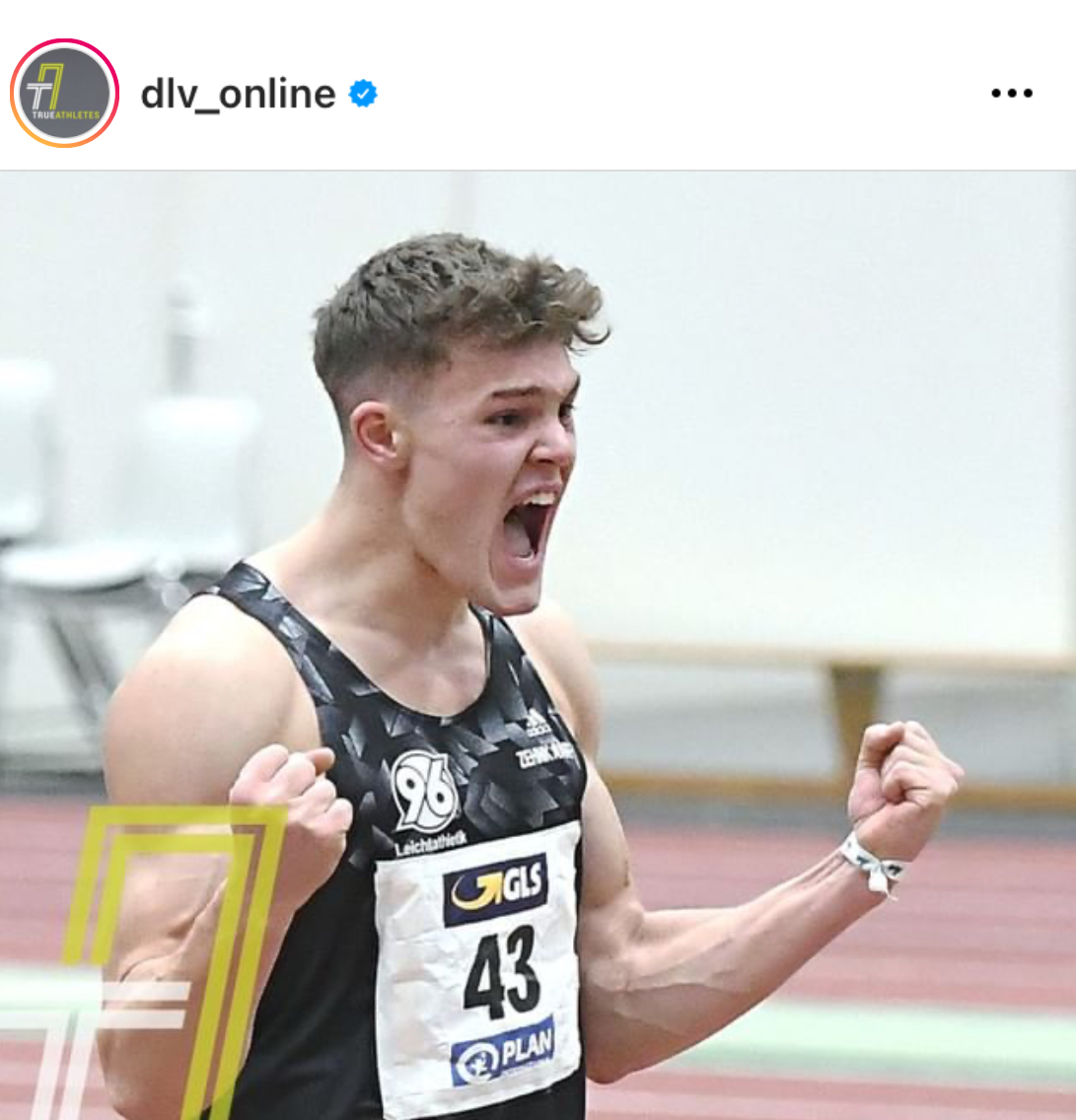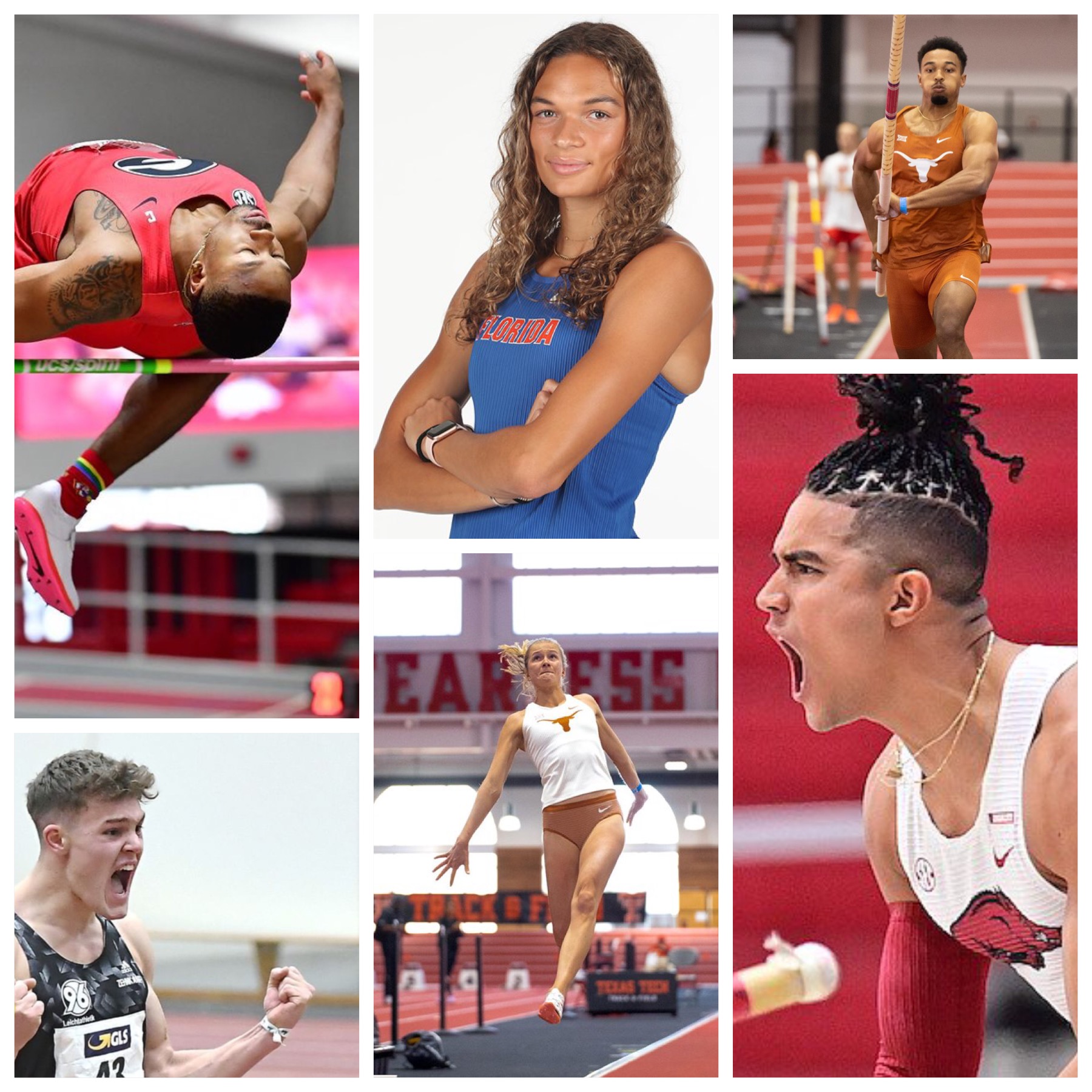When Simon Ehammer and Adrianna Sułek set their respective heptathlon and pentathlon world bests of 6285 and 4569 in Clermont Ferrand on Sunday evening, their scores came at the end of a weekend of action across Europe and in the USA.
First up was Anna Hall on 28 January with 4370, in her first season wearing the colours of the Florida Gators, at the Bob Pollock meet in Clemson: 8.39s, 1.73m, 13.21m PB, 5.61m and 2:09.99.
A few hours later, Hall’s mark was beaten by Latvia’s Kristīne Blaževiča, competing for the University of Texas at the Texas Tech meeting in Lubbock. Blaževiča, who finished 5th at the European U23 championships last year, took over the world lead with 4402, a PB score that would have been good enough for 6th place in Clermont Ferrand. Her series was: 8.54-1.77 PB – 12.47 PB – 5.99 – 2:13.43 PB.
Kristīne told Decathletes of Europe: “My first pentathlon of the season went very well and smoothly. I was doing my best to have fun and enjoy every minute of the competition. The highlight was definitely a PR in high jump when I cleared 1.77 in my third attempt. I’m very excited for the season because I know that there is still a lot of room for improvement.”
Also in Lubbock, on Saturday Germany’s Leo Neugebauer became the 19th German man to score over 6000 points. Neugebauer won the heptathlon in a PB score of 6021, with a series of 7.04 – 7.37 – 15.78 – 2.03 – 8.18 PB – 4.95 – 2.51.63.
He was quickly followed into the German 6000 club by Marcel Meyer, who scored 6024 to win the German championships in Leverkusen ahead of a resurgent Marvin Bollinger in 5954, but in the end without the fast improving Jannis Wolff (who retired with injury). Meyer’s score consisted of 7.06 – 7.15 – 14.80 – 1.97 – 7.94 – 4.90 – 2:39.13, all lifetime bests. Laura Voss won the pentathlon, scoring 4154.
Meyer told Decathletes of Europe: “I injured my shoulder last year during the heptathlon in Tallinn. After a fall in pole vault my labrum was torn. We quickly decided that a shoulder surgery was needed in order to fully recover. Now I have no more restrictions and my shoulder is fully functional. I knew that I was in good shape and that I’m capable of scoring big, but still didn’t expect it to be that good. Everything just went my way those two days. I’m just happy with the result.”


And in Glasgow, Howard Bell won the Scottish indoor heptathlon title, while Montpellier-based Emma Canning won the pentathlon. Canning scored 3773, while Bell scored 5269.
“It feels great to be the Scottish champion and retain the title within the training group,” he said (Andrew Murphy won in 2019 and Scott Connal in 2020). “I think it sets me up nicely for the British championships in 4 weeks’ time, which I’m really looking forward to.”
As Ehammer started his heptathlon in France, a monumental tussle between UGA’s Kyle Garland and Arkansas’ Ayden Owens was coming to a close at the Razorback Invitational in Fayetteville.
On Day 1, Garland was sitting on a score of 3628 – 28 points ahead of Ehammer’s Day 1 score – thanks to PBs in the 60m (6.90), shot (16.21) and high jump (2.16 indoor PB), and a long jump of 7.33. Owens was some 150 points behind.
But on Day 2 the tables turned, and as Garland only managed a 4.35 pole vault, Owens forged ahead to score 6272, the second-best collegiate score of all time behind Ashton Eaton’s 6499. Owens’ series was 6.82 – 7.42 (indoor PB) – 14.74 – 2.04 (PB) – 7.88 – 4.85 (PB) – 2.35.93 and was also a national Puerto Rican record. Owens now holds both the heptathlon and decathlon records for Puerto Rico, and currently sits second in the world behind Ehammer.
The top 7 heptathlon scores of the year so far have all come from athletes 24 or under – Artem Makarenko the oldest at 24 (4th with 6115), Sander Skotheim the youngest at 19 (7th with 5965), and Ehammer, Owens, Garland, Meyer and Neugebauer all 21-years-old.

